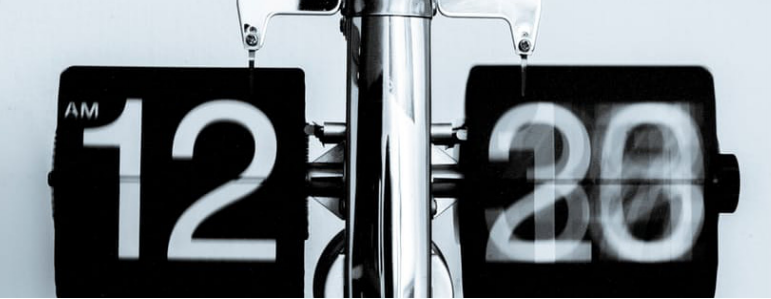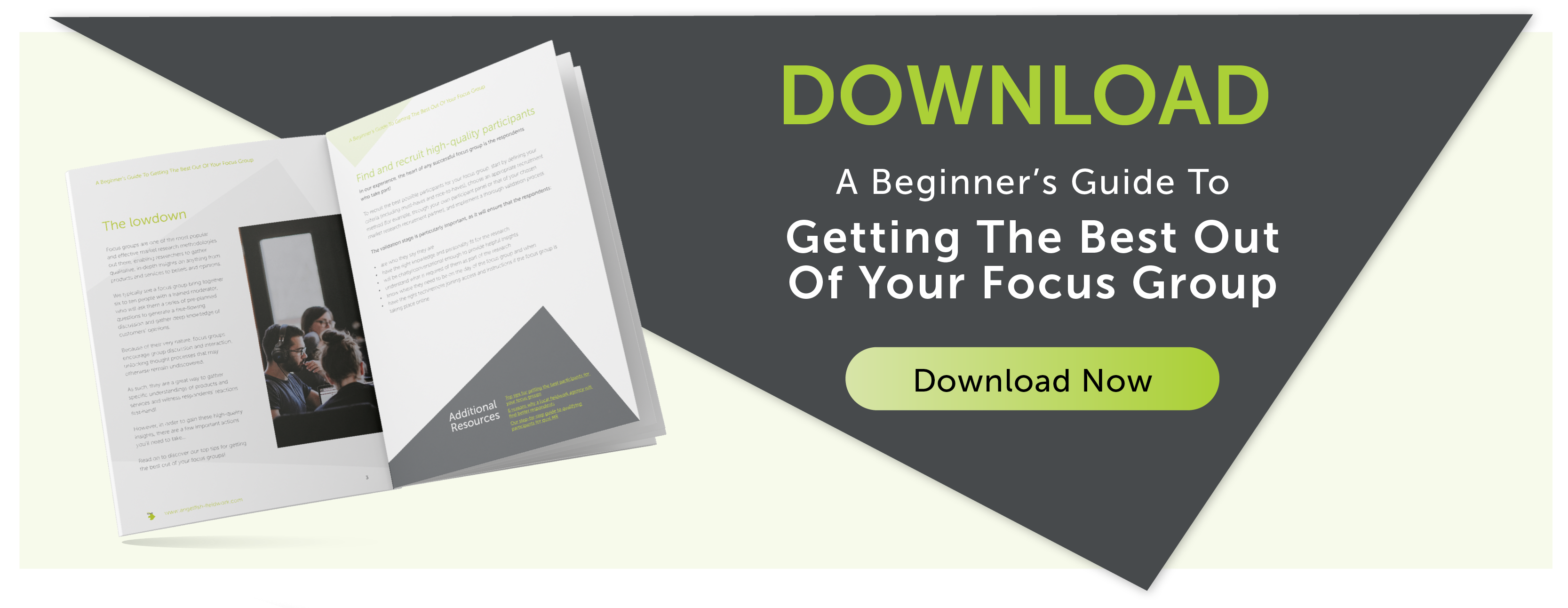
A Beginner's Guide to Getting the Most Out of Your Focus Groups
The Lowdown
Focus groups are one of the most popular and effective market research methodologies out there, enabling researchers to gather qualitative, in-depth insights on anything from products and services, to beliefs and opinions. We typically see a focus group consist of six to ten people who are brought together with a trained moderator, who will ask them a series of pre-planned questions to generate a free-flowing discussion and gather deep insights into customers’ opinions. Because of their nature, focus groups encourage group discussion and interaction, unlocking insights and opinions that may otherwise remain undiscovered. As such, they are a great way to gather specific understandings of products and services and witness respondents’ reactions first hand. So, read on for our top focus group tips to unlock the insights you need.

Keep it Short and Sweet
In our experience, we find that 90-120 minutes is the optimum length of time for a successful focus group. Any longer and you run the risk of participants becoming disengaged and bored. Any shorter and the moderator might run out of time to get through all the activities and planned questions. Also, it takes people a while to warm up and feel comfortable enough to share their opinions, so cutting off the group too soon could mean you miss out on a wealth of important information.
Pick the Right Time
To guarantee optimum attendance, it’s important to schedule your focus group for a time of day that works well for you participants. Generally, evening groups tend to work best when people have finished work – but of course it all depends on your audience. Shift workers might be able to attend evening groups, for example, but may struggle with daytime groups. Just make sure you research your target audience beforehand so you have a clear idea of when will be best so you can guarantee maximum attendance.
Get the Numbers Right
One of our most important focus group tips is to get your numbers right. Recommended group sizes will vary depending on the research project itself, but as a general rule we usually conduct focus groups in groups of six, eight or even ten. Any smaller and you won’t have enough participants to encourage group discussions and may prefer to look at mini focus groups or one-on-one interviews instead; any larger and it can be difficult for each respondent to make a contribution.
Because focus groups rely on a certain number of participants to work, we would also
recommend over-recruiting to allow for any dropouts on the day and ensure you are
prepared for every eventuality. We’d recommend recruiting eight people for six to attend,
ten people for eight to attend and twelve people for ten to attend in order to prevent any
delays on the day.

Offer a Fair Incentive
It’s standard practice in qualitative market research to offer participants an incentive as a way of saying thank you for giving up their time. Incentives can often maximise participation by showing your respondents you value their time and are grateful to them for taking part – but it’s important to make sure you are offering the right amount that is both reasonable and proportionate to the time and effort they have given.
It’s no secret that monetary incentives generally work best, but other incentives such as prize draws, vouchers or a free lunch would work well too. You should also consider when you plan to give the incentive – in most cases incentives are given at the end of the project, but in some circumstances, for example if there is a lot of pre-work to complete, it might be sensible to provide some of the incentive upfront to keep your participants motivated.
If you want to find out more focus group tips and how to recruit the best participants for your focus group then download our guide below!














